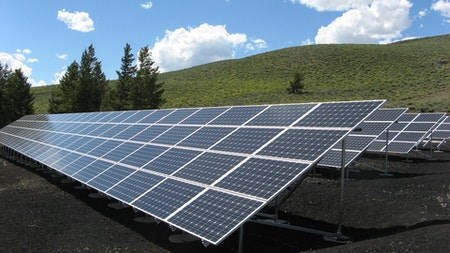Plans for Stellenbosch to become the first town in SA to produce its own “green” power and eliminate loadshedding are excellent news for the local property market, says Berry Everitt, CEO of the Chas Everitt International property group.
Reacting to the recent announcement by the Stellenbosch Municipality that it intends to become independent of Eskom and is investigating the best alternative power supply options*, he notes that one of the biggest effects of the Covid-19 pandemic is the rapid rise in corporate acceptance of full-time remote working, which has freed large numbers of people all over the world to “de-urbanise” from big cities to smaller centres where they hope to enjoy a better quality of life.
“And if Stellenbosch is able to offer a life without loadshedding, that will be a big attraction for those making this kind of move from Cape Town and even Johannesburg.”
Maria de Villiers, principal of the Chas Everitt franchise in Stellenbosch, says: “Remote workers may no longer need to live within easy reach of an office, but they do still need good internet connectivity and a reliable power supply, and the towns that can provide these will obviously reap the most benefits from the de-urbanisation trend - including an increased demand for real estate, a higher property rates base and a gain in intellectual capital.”
Being independent of Eskom would also, she says, make Stellenbosch attractive to more manufacturing and high-tech companies, which currently struggle with loadshedding even more than individual home-owners. “This would increase employment in the town, boost the local authority’s resources even more and enable the provision of even better services to residents.”
Meanwhile, the residential property market in Stellenbosch is already recovering well from the dual blows dealt last year by the national lockdown in the second quarter and the decline in demand for local student accommodation as Stellenbosch University – like many other tertiary institutions - adapted many of its courses to online teaching and remote learning.
“The town is already popular among Capetonians and semigrants from other provinces due to its picturesque location, proximity to an international airport and growing reputation as the centre of technological innovation in SA,” says De Villiers, “and according to the latest statistics from property data company Lightstone, there were only 44 fewer property sales registered in 2020 than in 2019, despite the three-month lockdown. “It also helped that home sellers became more willing to negotiate in the light of the pandemic, and we have seen average sale price of family homes decline from R4,5m at the start of 2020 to around R3,7m currently.
“Meanwhile, students are returning to campus and the demand for sectional title units has also been boosted by the lower interest rates, which have cut monthly bond repayments by 30% and encouraged many young professionals and executives already resident here to buy their own homes rather than continue to rent. This is reflected in a slight increase in the average price of such units from around R1,35m at the start of 2020 to R1,4m currently.”
What is more, she says, the average age of home-owners in Stellenbosch is dropping, with 71% of all recent sales being made by owners over the age of 50 and 68% of purchases being made by people under 50 (26% aged 18 to 35 and 42% aged 36 to 50).





